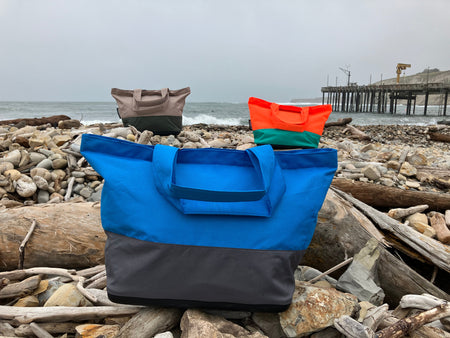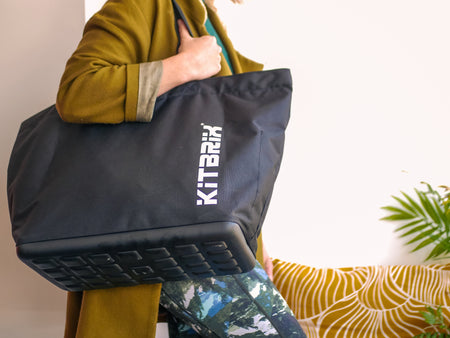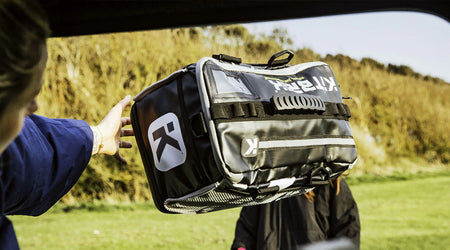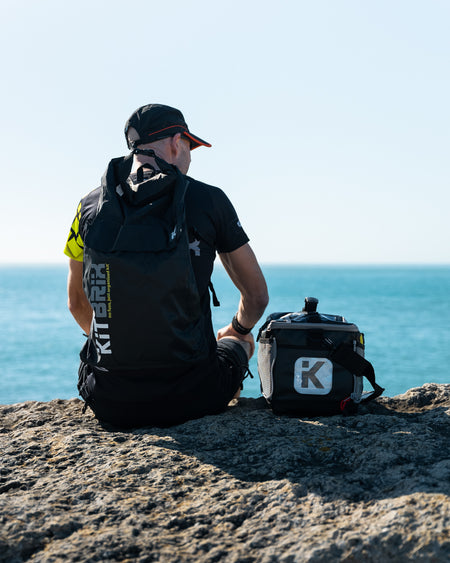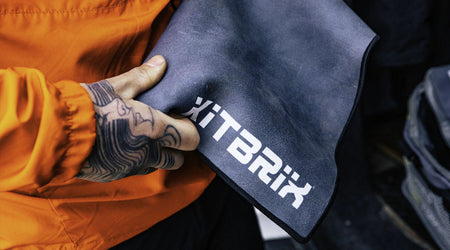
Written by Kitbrix ambassador Yiannis Christodoulou.
With many pools currently closed, you may be considering training in open water. Before you start, here are a few things to consider...
There are many obvious differences between swimming in the pool and open water but I am going to discuss some differences between the two to help you with your swimming. You may be a strong pool swimmer but that doesn’t necessarily mean you will be strong at open water swimming.
Pool swimming is safer than open water purely because you are in a confined area and normally people and lifeguards are near you. So the fear of being unsafe is mainly taken away and with many pools now you can touch the bottom at both ends. There are many benefits from training in the pool to stop you from being bored doing laps and to help you improve.
The first thing you can do is accurate reps which you can time/pace and see your improvement each week. Depending on the length of the pool you can have a set plan that will help you in your training. You can take equipment; most pools allow this. If you want to improve its important not to just get in the pool and swim endless lengths at the same speed as improvement won’t come. Doing reps using pull buoys and paddles can help you get stronger, faster and become more buoyant. Swimming equipment is harder to use in the sea. Drills can easily be done in the pool due to no waves or current. In open water it will be more difficult. These are three areas that are important in the pool. When it comes down to the race day such as a Triathlon/Aquathlon in the pool it’s pretty easy as there is no open water fear and it feels safer. The only problem with pool races is that you’re not really racing others as it is mainly a timed event and you go off one by one.
With open water swimming there is a lot to consider but also so many benefits. Safety wise - depending where you do the open water swimming you need to consider if it’s safe. For example I swim in the sea but if the tide is really rough there is no way I am going to swim. Even in the summer I will use my wetsuit swimming in the sea as I feel much safer and buoyant with it on. Now with open water you can’t really do drills because of the unpredictability of waves. Reps times might be different due to cross tides and weather etc. So one week you might be flying along and the next struggling to move. Also, using equipment such as pull buoy and kick board will be a lot harder. People are put off with open water with the fear of something happening to them. Most seafronts have designated areas to swim which have lifeguards and the same with lakes and rivers.

The benefits of open water swimming is that it can improve you a lot, help with breathing purely because of the random waves etc. You get stronger because you are swimming against current rather than a pool where there is not current. Sea swimming is good for the skin and is proven to also help with recovery due to the salt in the water. If you are swimming in the sea it’s always good to mix up the pace and have a plan, instead of just getting in and swimming at one pace. The temperature of the water, depending on the time of the year you swim, may not be higher than 19 degrees towards the end of summer. September is normally the warmest time to swim in the year, whereas pool temperatures are kept high to around 28 degrees all year round. Air temperature can play a factor such as it can be a cold day in September but the temperature of the sea water can be warmer than air temperature which can affect your breathing. The body works harder in open water due to it being colder than the pool. You cannot stand up in the middle of a lake or sea, whereas you can in the pool.
In open water, you will need to keep an eye out for where you are, whereas in a pool you won’t need to because once you get to the end of the pool you turn back. In race day in open water you normally all go off at the same time so my advice would be if it’s your first time racing in open water stay away from the middle and keep to the edge. Open water races scare people because they fear it for many reasons, but my advice would be to practice there before your race to get used to it.
These are some tips and differences which I hope helps.


